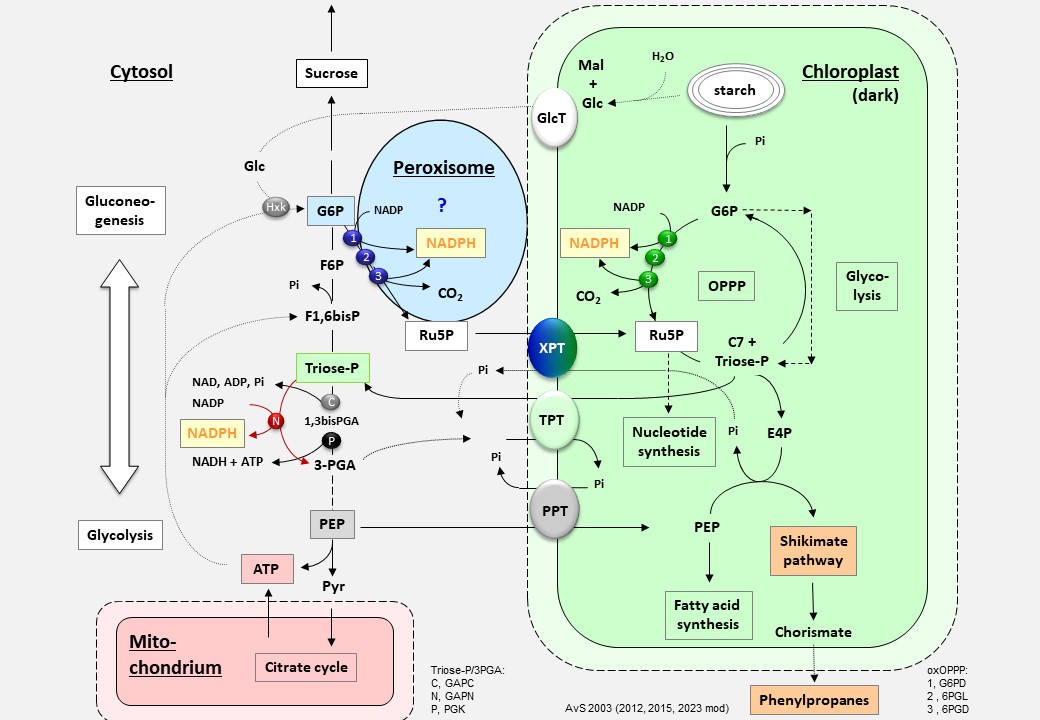„Role of Glucose-6-Phosphat Dehydrogenase (G6PDH) and the oxidative Pentose-Phosphate Pathway (OPPP) for redox homeostasis in higher plants“

In this project we study the role of the oxidative pentose phosphate pathway (OPPP) that occurs in different plant cell compartments or tissues and operates at the border of primary and secondary metabolism. After successful identification of cDNA sequences coding for first cytosolic and plastidic plant G6PD isoforms from potato (Graeve et al., 1994; von Schaewen et al., 1995) the two cysteine positions required for redox- regulation of plastidic G6PDH isoenzymes were identified by site-directed mutagenesis (P1 and P2 class, see Wenderoth et al., 1997; Wendt et al., 1999; 2000). G6PDH isoenzymes present in the cytosol and in chloroplasts (at least of photosynthetically active source leaves) underlie different regulatory principles (“sugar sensing” versus redox-sensing”; Hauschild & von Schaewen, 2003). Recently we elucidated the role of another (catalytically inactive) „plastidic“ G6PD isoform of Arabidopsis (G6PD4) that mediates alternative targeting of catalytically active isoenzymes to peroxisomes in redox-dependent manner (Meyer et al., 2011). Our results with transgenic tobacco plants show that enzyme replacement of cytosolic G6PDH activity by a plastidic root isoform (P2 type) improves NADPH provision in the cytosol. This supports signaling via production of reactive oxygen species (ROS) at the plasma membrane („oxidative bursts“), and therefore plays an important role during plant development and stress responses (Scharte et al., 2009). Currently we work to characterize details of subcellular protein localization of various other OPPP-relevant activities and the mechanisms that contribute to enhanced stress tolerance in enzyme-replaced plant lines.
3rd party Funding:
Deutsche Forschungsgemeinschaft (DFG)
Involved scientists:
Prof. Dr. Antje von Schaewen, PhD students: Marie-Christin Lutterbey, Hannes Lansing. Technician: Kerstin Fischer (Dr. Christian Hölscher, Dr. Christian Schwöppe, Dr. Tanja Meyer, Technician Olessja Becker).
Cooperation:
Dr. Judith Scharte, Dr. Sebastian Hassa, Emeritus Prof. Dr. Engelbert Weis (formerly Institute of Botany, WWU Münster).
PROvendis:
Patent-Anmeldung EukaResist
